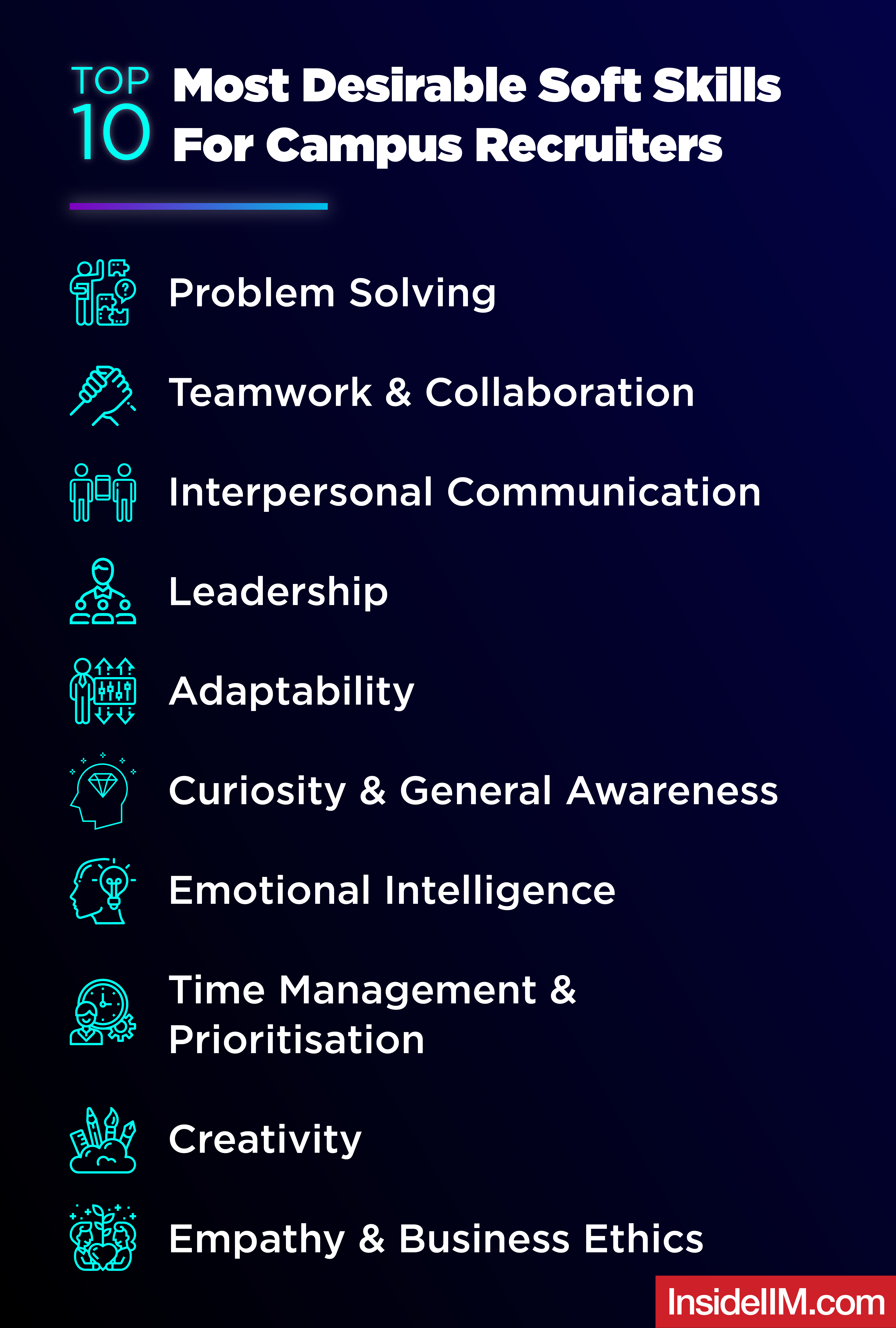In the competitive global market, a Master of Business Administration (MBA) degree has become increasingly essential for aspiring business leaders. With numerous MBA programs available, it is crucial for prospective students to carefully consider the skills they seek to develop.
This article explores the key skills that MBA programs emphasize most, providing insights into the core competencies sought by employers and the value proposition of an MBA education.
MBA Programs: Beyond Technical Skills, What Makes You Stand Out?
Business Acumen: The Foundation of Success
The modern MBA program goes beyond technical knowledge, emphasizing the development of business acumen. This encompasses a deep understanding of various business functions, including finance, marketing, operations, and strategy.
It involves the ability to analyze complex business scenarios, identify opportunities and challenges, and formulate effective solutions. Business acumen is cultivated through rigorous coursework, case studies, simulations, and real-world projects.
| Area | Skills Emphasized |
|---|---|
| Financial Analysis | Financial statement analysis, valuation, investment analysis, risk management |
| Marketing Strategy | Market research, customer segmentation, product development, branding, advertising |
| Operations Management | Supply chain management, quality control, process improvement, lean manufacturing |
| Strategic Management | Competitive analysis, strategic planning, organizational structure, industry trends |
Leadership and Communication: Essential for Success
MBA programs recognize the importance of effective leadership and communication. Students are challenged to develop their leadership skills through group projects, presentations, and case studies. They learn how to motivate teams, inspire followers, and navigate complex organizational dynamics.
Effective communication is also emphasized, encompassing both written and verbal skills. Students develop the ability to communicate complex ideas concisely and persuasively, both in individual and team settings.
| Skill | Description |
|---|---|
| Leadership | Inspiring others, motivating teams, fostering collaboration, making strategic decisions |
| Communication | Clear and concise written and verbal communication, persuasive arguments, active listening |
| Negotiation and Conflict Resolution | Reaching mutually beneficial agreements, mediating disputes, building consensus |
| Teamwork | Collaborating effectively, contributing to group success, managing diverse perspectives |
Analytical Thinking and Problem-Solving: Key to Decision-Making
MBA programs equip students with analytical thinking and problem-solving skills, which are crucial for making informed decisions in a dynamic business environment.
Students learn to identify problems, gather relevant data, analyze information, and develop logical solutions. They are exposed to various frameworks and tools, including data analytics, statistical modeling, and decision-making models, to enhance their problem-solving abilities.
| Skill | Description |
|---|---|
| Critical Thinking | Evaluating information, identifying assumptions, drawing logical conclusions |
| Data Analysis | Collecting, analyzing, and interpreting data to inform decisions |
| Problem-Solving | Defining problems, developing solutions, evaluating outcomes |
| Decision-Making | Gathering information, evaluating alternatives, choosing the best course of action |
What skills do you gain from an MBA?

Analytical and Critical Thinking Skills
An MBA program emphasizes developing analytical and critical thinking skills, essential for effective decision-making in complex business situations. You’ll learn to identify problems, analyze data, evaluate options, and make informed judgments.
- Problem-solving: You’ll develop frameworks and methodologies for breaking down complex business challenges into manageable components.
- Data analysis: You’ll gain expertise in interpreting and drawing conclusions from various data sources to identify trends and make informed decisions.
- Critical thinking: You’ll learn to evaluate information objectively, question assumptions, and consider different perspectives before formulating solutions.
Leadership and Management Skills
An MBA program prepares you for leadership roles by developing your managerial abilities. You’ll gain insights into different management styles, team dynamics, and effective communication strategies.
- Strategic thinking: You’ll learn to develop long-term visions and strategies to guide organizations towards success.
- Team leadership: You’ll acquire skills in motivating, delegating, and collaborating with diverse teams to achieve shared goals.
- Communication and interpersonal skills: You’ll enhance your ability to communicate effectively, build strong relationships, and navigate challenging situations.
Business Acumen and Specialization
An MBA program provides a comprehensive understanding of core business functions and offers specialization options to delve deeper into specific areas of interest. This knowledge equips you to make strategic decisions and contribute meaningfully to organizations.
- Financial management: You’ll gain knowledge of accounting, finance, and investment strategies to make sound financial decisions.
- Marketing and sales: You’ll learn about market research, consumer behavior, branding, and sales strategies to drive revenue growth.
- Operations management: You’ll develop expertise in supply chain, logistics, quality control, and process optimization to ensure efficient operations.
What is the best emphasis for MBA?

What is an MBA Emphasis?
An MBA emphasis is a specialization within the Master of Business Administration (MBA) program that allows students to focus their studies on a specific area of business. It provides a deeper understanding of the chosen field, equipping graduates with specialized knowledge and skills for specific career paths.
Factors to Consider When Choosing an MBA Emphasis
Choosing the right MBA emphasis is crucial for your career goals. Here are some key factors to consider:
- Your Interests and Career Aspirations: What area of business excites you? What kind of role do you envision yourself in after graduation? Your emphasis should align with your passions and professional objectives.
- Industry Trends and Job Market Demand: Research current industry trends and the job market outlook for different specializations. Choose an emphasis with strong potential for career growth and opportunities.
- Program Curriculum and Faculty Expertise: Explore the curriculum and faculty expertise within each emphasis. Look for programs with strong academic reputation and relevant industry experience.
Popular MBA Emphasis Areas
Some of the most common and sought-after MBA emphasis areas include:
- Finance: Covers topics like investment management, financial analysis, corporate finance, and risk management. It prepares graduates for careers in financial institutions, investment firms, and corporate finance departments.
- Marketing: Focuses on strategic marketing, consumer behavior, digital marketing, brand management, and market research. It equips graduates for roles in marketing agencies, advertising firms, and marketing departments.
- Management: Encompasses leadership, organizational behavior, strategic management, and operations management. It prepares graduates for general management roles across various industries.
- Entrepreneurship: Covers topics like business planning, venture capital, new venture creation, and innovation. It prepares graduates to launch their own businesses or work in startup ecosystems.
- Data Analytics: Focuses on data analysis, statistical modeling, predictive analytics, and data visualization. It prepares graduates for roles in data-driven organizations and analytics departments.
What does MBA focus on?

An MBA, or Master of Business Administration, is a postgraduate degree that focuses on developing the skills and knowledge necessary to succeed in the business world. The curriculum is designed to equip students with a comprehensive understanding of core business principles and practices, enabling them to effectively manage and lead organizations.
Core Business Functions
The MBA curriculum typically covers a broad range of business functions, including:
- Finance: This area focuses on financial accounting, financial reporting, investment analysis, and corporate finance. Students learn how to manage financial resources, analyze financial statements, and make sound investment decisions.
- Marketing: This function encompasses market research, product development, branding, pricing, promotion, and distribution. Students develop skills in understanding customer needs, creating effective marketing campaigns, and managing brand reputation.
- Operations Management: This area covers the design, planning, and control of operations within an organization. Students learn to optimize production processes, manage supply chains, and improve efficiency.
- Human Resources: This function focuses on employee recruitment, training, compensation, and performance management. Students learn to build and manage high-performing teams, foster a positive work environment, and comply with labor laws.
- Strategy: This area involves analyzing the competitive landscape, identifying growth opportunities, and developing strategic plans to achieve organizational goals. Students learn to think strategically, assess risks, and make informed decisions to drive long-term success.
Developing Essential Skills
In addition to core business knowledge, MBA programs emphasize the development of essential skills for business leaders, including:
- Critical Thinking and Problem Solving: MBAs are trained to analyze complex business problems, identify key factors, and develop creative solutions.
- Communication and Leadership: Strong communication skills are crucial for success in business. MBA programs focus on developing effective written and verbal communication, presentation skills, and leadership qualities.
- Data Analysis and Decision Making: In today’s data-driven world, MBAs are equipped with the analytical skills to extract meaningful insights from data, evaluate information, and make sound decisions based on evidence.
- Negotiation and Teamwork: MBAs develop skills in negotiation, conflict resolution, and teamwork, enabling them to work effectively with individuals and teams across diverse backgrounds.
- Ethical Considerations: MBA programs emphasize the importance of ethical decision-making, corporate social responsibility, and sustainability in business practices.
Industry Specialization
Many MBA programs offer specialization tracks to cater to specific industry interests, such as:
- Finance: This specialization focuses on financial markets, investment banking, asset management, and other finance-related fields.
- Marketing: This specialization emphasizes digital marketing, brand management, consumer behavior, and market research.
- Technology: This specialization covers topics such as data analytics, artificial intelligence, cybersecurity, and software development.
- Healthcare: This specialization focuses on healthcare management, pharmaceutical industry, and healthcare technology.
- Entrepreneurship: This specialization provides students with the tools and knowledge to start and grow their own businesses.
What are the soft skills for MBA students?

Communication Skills
Effective communication is crucial for success in any MBA program and future career. It involves being able to articulate ideas clearly and concisely, both verbally and in writing. Strong communication skills enable students to:
- Engage in effective discussions and presentations, contributing valuable insights and perspectives.
- Build strong relationships with classmates, professors, and potential employers, fostering collaboration and understanding.
- Negotiate effectively, advocating for their ideas and achieving desired outcomes.
Leadership Skills
MBA programs often emphasize developing leadership skills, preparing students for senior management roles. These skills encompass:
- Motivating and inspiring others, creating a positive and productive work environment.
- Delegating tasks effectively, empowering team members and maximizing productivity.
- Taking initiative and leading by example, demonstrating a strong work ethic and commitment to excellence.
Problem-Solving Skills
MBA programs challenge students to think critically and solve complex business problems. This involves:
- Analyzing situations thoroughly, identifying key issues and potential solutions.
- Thinking strategically, considering the long-term implications of decisions.
- Developing creative and innovative solutions, adapting to changing circumstances and emerging trends.
Frequently Asked Questions
What are the most important skills that MBA programs emphasize?
MBA programs typically emphasize a range of essential skills that prepare graduates for success in the business world. Some of the most common skills include: analytical thinking, problem-solving, communication, leadership, teamwork, financial management, and strategic thinking. These skills are crucial for navigating complex business challenges, leading teams, and making effective decisions.
How do MBA programs teach these skills?
MBA programs utilize various methods to instill these critical skills in their students. Case studies are a common approach that allows students to analyze real-world business scenarios and develop problem-solving strategies. Group projects foster teamwork, communication, and leadership abilities. Presentations enhance communication and public speaking skills. Simulations provide hands-on experience in various business functions, such as finance, marketing, and operations.
Why are these skills so important for MBA graduates?
The skills emphasized in MBA programs are highly sought after in the business world, making graduates highly competitive in the job market. Analytical thinking and problem-solving are essential for identifying and addressing business challenges. Communication and leadership are crucial for effective teamwork and leading successful initiatives. Financial management and strategic thinking are necessary for making sound business decisions and achieving organizational goals.
How can I learn these skills if I don’t plan to pursue an MBA?
While an MBA program offers a structured and comprehensive approach to acquiring these skills, there are alternative ways to develop them. Online courses, workshops, and professional development programs can provide valuable training. Joining professional organizations, participating in community initiatives, and taking on leadership roles within your organization can also enhance your skills. Furthermore, actively seeking out opportunities to apply these skills in your work or personal life is key to their development.



